Composting is a fantastic way to recycle kitchen waste, reduce household garbage, and create nutrient-rich soil amendments that can significantly enhance your garden’s health. This blog will guide you through the process of making organic fertilizer from everyday kitchen scraps, providing a comprehensive framework for turning your waste into valuable compost. By following these steps, you’ll not only contribute to a more sustainable environment but also enjoy the benefits of healthier plants and soil. Whether you’re a seasoned gardener or a beginner, this guide will equip you with the necessary knowledge to start composting effectively and efficiently.
Introduction to organic fertilizers and their benefits for your garden
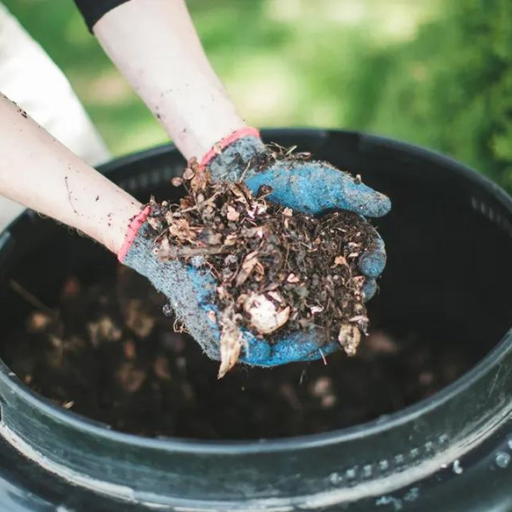
Understanding Organic Fertilizer
Organic fertilizers are made from natural inputs such as kitchen leftovers, livestock wastes or plant residues. Unlike the synthetic fertilizers, organic ones decompose slowly in the soil improving its structure and fertility with time. They increase water and nutrient holding capacity of the soil, enhance beneficial microbial activity and reduce dependence on chemical inputs. Consequently, they ensure your garden’s long-term health while supporting sustainable growth through strong plant development.
Benefits of Using Organic Fertilizer from Kitchen Waste
This makes using kitchen waste for making compost an option that is suitable even for beginners in gardening. Firstly, it is rich in important nutrients including nitrogen, phosphorous and potassium that can play a very significant role in making the soil fertile enough. Moreover, this addition of nutrients aids in crop yield enhancement due to vigorous plants growing. Secondly, when kitchen scraps are composted; it helps to reduce wastes thus; reducing dump site garbage collection. This action also reduces emissions of methane gas as well as promotes environmental sanity. Lastly, through improving moisture retention organic manure from kitchen remains prevents erosion and enhances soil structure. The release of nutrients into the ground from organic manures is gradual hence ensuring long term soil health which creates a proper habitat for many organisms that help to support plant communities improved by recycling kitchen waste for use as compost.
How Organic Fertilizer Improves Soil Health
Organic fertilizer improves soil health through several key mechanisms: one being enhancing soil structure by increasing its content with organic matter leading to better aeration and water retention capacities thereby resulting in stronger roots of plants hence reduced erosion of soils especially those that are not strong rooted; two being slowly releasing essential nutrients such as nitrogen (N), phosphorus (P) and potassium (K) at varying rates over time giving steady supply all through their life cycles; and lastly boosting beneficial soil microbes’ activities involved in nutrient cycling diseases suppression and overall fertility among others . Organic fertilizers also create a balanced environment for sustainable plant growth and resilience against pests and diseases by creating a healthy, biologically active soil ecosystem.
What Kitchen Waste Can Be Used for Composting?
Suitable Types of Kitchen Waste for Compost
There are various kinds of kitchen waste that would do well in the compost. Vegetables and fruit scraps such as apple hearts, banana rinds, carrot tops are beneficial to include because they decompose quickly and provide nutrition to soil. Coffee grounds and tea bags also add nitrogen and help improve soil structure. Eggshells though slow to decay serve as a good source of calcium required by plants. Besides, stale breads together with other grains including cereals plus paper products like paper towels or tissue papers which weren’t applied with chemicals can be put into compost pit. It is advisable not to add meat, dairy or oily foods since it attracts pests and causes bad odours. By putting these kitchen wastes into a compost pile one can make rich organic fertilizers thus improving the health of your garden.
Incorporating Coffee Grounds into Your Compost
Adding coffee grounds to your compost is an excellent idea. They contain high amounts of nitrogen necessary for plant development. When properly used they aid in breaking down organic materials quickly, hasten up the process of making compost while enhancing its structure too. To introduce coffee grounds into your pile all you have to do is sprinkle them all over the heap then mix them well with other ingredients present there for composting purposes only. Carboniferous matters like straw or dry leaves should be introduced at an equivalent amount so that coffee grounds will not cause acidity to the mixture of decaying substances in your rubbish pit. Therefore, through using ground coffee when composing manure customers would create nutrient-replete environments where their crops can thrive beautifully.
The Role of Eggshells in Nutrient-Rich Composting
Egg shells are very important when it comes to creation of nutrient-rich fertilizer on account of their content which supports cell formation and firmness in most plants especially tomatoes and peppers whose blossoms may have end rot diseases caused by lack of enough calcium in the soil. Eggshells, when incorporated into compost piles, also help to balance acidity of soils and provide a slow release source of calcium which makes it possible to avoid such things as blossom-end rot in tomatoes and peppers. For better decomposition process, egg shells should be broken into smaller pieces before inserting them into the compost pit. Moreover, eggshells have been added to your manure; they will provide essential minerals that are important for growth and health of plants.
Ways to start composting your kitchen scraps at home
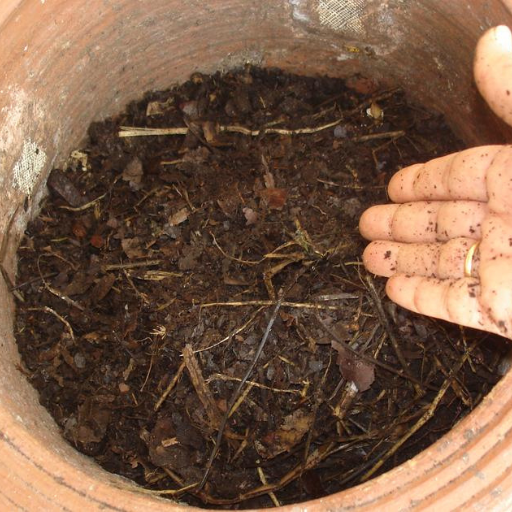
Getting Started with Composting Organics
- Pick a compost bin: It can be an outdoor compost bin, a tumbler or a small indoor container for kitchen scraps; you will have to choose it depending on your living space.
- Choose a location: Find a nice place for your compost bin, which is easy to reach and has good drainage as well as ventilation. The most appropriate outdoor spot should not be directly exposed to the sun’s radiation.
- Add ingredients: Now go ahead and put green material at the bottom of the compost bin. This refers to materials that release nitrogen into the compost such as fruit peels, coffee grounds and freshly cut grass. On top of this layer all these with brown materials including dried leaves, cardboard pieces and straw which add carbon.
- Keep Equilibrium: Balance between greens and browns should be maintained at around 2 parts brown for every 1 part green. This will ensure proper decomposition without bad smell from anaerobic conditions.
- Turn over Compost Regularly: Regular turning using either garden fork or aerator ensures even decay in the heap of waste. Aeration enables quick processing of decaying matter thus speeds up decomposition process through increased microbial activities.
- Check moisture content regularly: The pile must remain wet but never soggy. It might feel damp like a sponge making it possible for organic matter break down easily.
By following these steps, you can efficiently transform kitchen scraps and yard waste into nutrient-rich compost to enhance your garden’s vitality.
Choosing Your Perfect Compost Bin – Some Tips
In deciding upon the right type of compost bin or pile consider this information sourced from popular websites:
- Kind of Compost Bin: There are different types of bins one can use for composting namely stationary ones, tumblers and worm bins. The stationary ones are for those who need large amounts of composts and are easy to use. Tumblers allow the easier turning and aeration thus making them ideal for kitchen wastes that require faster composting times compared to other types mentioned. Smaller spaces can be adapted using vermicomposting under which kitchen waste is digested by worms.
- For limited space: A compact or vertical compost bin may be the perfect fit in a small area. On larger plots, one can go for a bigger bin or even several piles.
- Material Quality and Durability: Composters come in many different materials such as plastic, metal or wood. Plastic bins are light, durable and cheaper most of the time. Wooden bins blend well with the surrounding nature but on the other side they might need more maintenance than others. Metal ones last long although they rusted easily.
- The ease attachment of composting equipment: Go for if it is simple to handle manure from your household. The process can be made more convenient by things like removable lids, an access door which helps you turn compost better on your own or built-in systems allowing enough air circulation while decomposing organic matter into humus.
- Local Climate Consideration: Your local climate should also determine what kind of composting bin you buy. In regions where it tends to be wetter a lid that fits securely will prevent excess moisture from getting inside the unit while in arid climates would benefit from retention of water by their containers.
Evaluating these factors will help you choose a compost bin or pile that suits your needs and facilitates successful composting process
How to Keep Your Compost Heap Working Efficiently
When looking forward to decompose the organic matter, your compost heap should be efficiently maintained. The following are some of the ways that you can maintain your compost pile:
- Green and Brown Materials Balance: Maintain an appropriate balance of green (nitrogen-rich) and brown (carbon-rich) materials in your compost pile. For example, greens include kitchen scraps, fresh grass clippings, and coffee grounds while browns are composed of dry leaves, straw or cardboard. This makes the composting process faster.
- Aeration: Use a pitchfork or a composter’s fork to regularly turn your compost pile in order to air it. Oxygen is needed by these organisms breaking down the organic matter. Try turning your pile every 1-2 weeks.
- Moisture Content: Ensure that the compost pile stays moist but not saturated with water. It ought to feel like a wrung-out sponge. If it becomes too dry, decomposition will become sluggish; if over-wetted, it may become anaerobic and produce an unpleasant smell.
- Particle Size: Destroy or tear apart bigger materials before putting them onto the heap. Smaller bits decay more quickly and evenly leading to quicker production of compost
- Temperature Monitoring: Monitor how hot your own composting heap becomes; effective decomposition begins at temperatures between 130°F (54°C) and 160°F (71°C). It might need turning or adding green materials if its temperature falls.
- Pest Control: For this reason avoid bones, meat, dairy products as well as oils from being dumped into the pile. Make sure there are no gaps in the bin for pests to enter and consider covering new food scraps with several layers of brown material.
Your garden will have rich fertile soil through efficient maintenance explained above which aids in making high-quality humus as fast as possible thus improving fertility factors greatly.
Making liquid fertilizer from kitchen waste
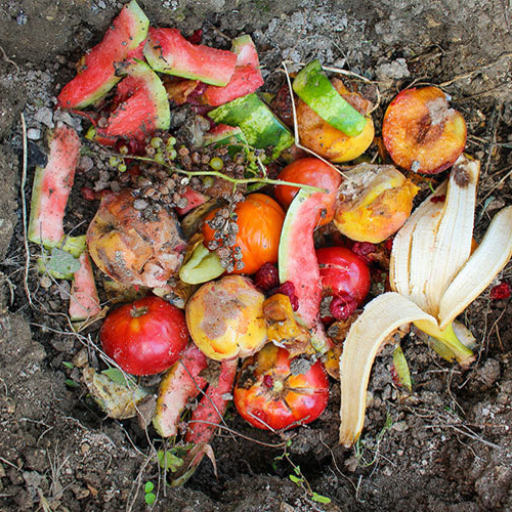
Ways of Transforming Organic Waste into Liquid Fertilizer
- Blending and Straining: Fruit peels, vegetable peels, coffee grounds, egg shells and water can be combined in a blender to form a slurry. The mixture is then passed through a fine mesh sieve or cheesecloth to separate the solid substances from the liquid. The resulting fluid may be diluted with some more water to make it a potent fertilizer for plants.
- Fermentation: Another method involves placing kitchen waste in water together with some little sugar/mollases so as to allow fermentation. Mixtures should settle over 1-2 weeks period with occasional stirring. Once the compost has decomposed it needs to be strained and diluted before application on your plants. It ensures nutritional value while enriching soil health through useful microorganisms which benefit the land.
- Soaking in Water: Vegetable scraps, banana peels or leafy green materials can be put in a bucket of water and soaked for three to five days; later on liquidized by straining off their pulps. This strained fluid is a quick organic fertilizer when mixed at 1:10 (Liquid fertilize : Water) ratio before watering crops. Therefore this is an easy way of developing fast-acting liquid fertilizer.
By using these techniques, you will effortlessly modify kitchen leftovers into useful liquid manure that replenishes important nutrients in your farm garden.
Creating Compost Tea: A Nutrient-Rich Liquid Fertilizer
Composting tea offers an easy way of supplying nutritious organic beverages that improve crop yields significantly if used properly. Firstly, get a container full of non-chlorinated water then mix one part mature compost with five parts water into it. Ensure that compost is well absorbed by swilling contents thoroughly within the container after which let them stay for about twenty-four hours up to forty-eight hours and occasionally shake them again so as to expose bacteria to air inside the bin; however, once the brewing time ends, decant the same to eliminate physical waste. The resulting tea can be poured around the plants or sprayed directly on their leaves. Furthermore, it not only supplies critical nutrients but also introduces good micro-organisms that boost soil health and make plants more resilient.
Using Liquid Fertilizer for Increasing Crop Yield
Plant growth can be considerably enhanced through liquid fertilizers which provide plant available nutrients that are easily absorbed by roots. As opposed to granular fertilizer, liquid formulations of fertilizers can deliver vital minerals directly to root zone as well as foliage hence promoting quick uptake and utilization. Because they are instantly accessible, such nutrients bring about immediate correction of deficiencies and thus lead to a quick growth with higher production capacity. Additionally these types of chemical solutions can be personalized to match individual crop requirements thereby making each application both cost-effective and efficient. These fertilizers when applied as a soil drench or through foliar spraying offer an adaptable and effective way of maintaining healthy productive plants.
Problems to avoid when composting food waste
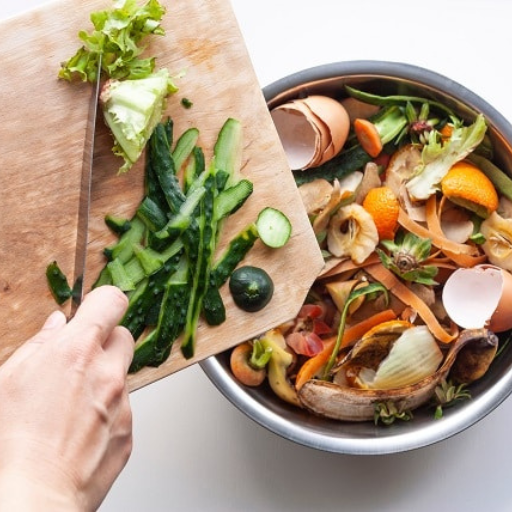
Dealing with Stink and Proper Ventilation
It is important to handle stenches during composting and ensure that the air flows in properly. Dealing with smell, I balance green materials and brown ones on my compost heap to avoid a lot of bad odors as a result of too much green waste. I also make sure that the pile receives oxygen by constantly turning it over so that it can decompose faster besides minimizing odors. Additionally, I keep meat, dairy products, or greasy foods from my compost pile because they produce awful smells. For good ventilation, I introduce bulky inputs such as straw or wood chips into my compost bin or pile to enhance its structure while creating spaces for the movement of air around it. It helps me have a healthy, efficient and odorless compost.
Preventing and Controlling Pests in Your Compost
Preventing and controlling pests in your compost are some simple yet effective things you can do. First, I ensure that all food scraps are buried completely in the compost pile so as not to encourage pests such as rodents and insects. By not putting any meats, dairy products, oily foods these animals are kept at bay. Regularly rotating the heaps ensures disturbance of potential nesting places hence decomposition will be quicker thus shortening time when food remains attractive to pests. Moreover, I use fine mesh or secure lid for my compost bin so that big-sized attackers kept outside while allowing enough aeration inside.. Therefore,I am able to achieve this without stress.
Identifying & Resolving Common Composting Problems
To solve common problems related to making manure one has to observe keenly then adjust appropriately. One of them is having a dry heap which hampers decomposition rate.Some indicators include squeezing out water from handfuls of matter and noticing only few drops or even none coming out.For example, if the heap feels dry when touched then there is need for addition water until it achieves damp sponge-like wetness. On the other hand, when the compost gets too much moisture and starts becoming slimy, extra browning agents like straw or cardboards will be useful in sopping up excess water and enhancing air circulation. Another problem is odor; it may result from lack of sufficient oxygen or excessive presence of green materials. Therefore I turn the pile more frequently and ensure green to brown material ratio is balanced. Additionally, if my compost pile is not heating up,it might require more nitrogenous waste or could be small in size;I introduce kitchen remains and make sure it is at least as big as one yard high and wide for maximum microbial activity.By dealing with such common issues, I ensure that my heap works well.
Frequently Asked Questions (FAQs)
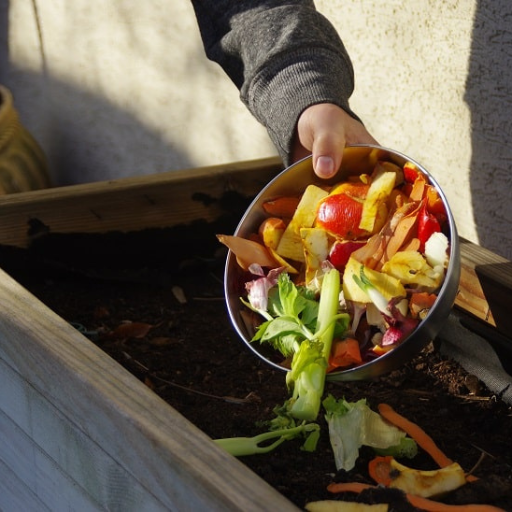
Q: What can I do to avoid my compost from smelling bad?
A: To avoid the smell, ensure that there is a balance between the green (nitrogenous) and brown (carbonaceous) materials. Regularly stirring, maintaining enough moisture and throwing in things like sawdust or dried leaves can help prevent the stink of a manure heap.
Q: Why should I use homemade compost in my garden?
A: Homemade compost helps enrich soil by providing it with vital nutrients, enhancing its structure, and increasing its water holding capacity. It also encourages good microbial activities while suppressing plant diseases as well as pests. By using it on your plants as a fertilizer you will witness faster growth rates and increased yields.
Q: Can cooked food leftovers be put into my compost pile?
A: Composting cooked food scraps and leftovers is not recommended, particularly those with oils, meat or dairy products as they may attract vermin and cause odor problems. Instead go for fruit and vegetable peelings, coffee grounds and eggshells if you want an easier time with your composting exercise.
Q: How do you know when compost is ready to use?
A: When transformed into a dark crumbly material giving out an earthy odor then your compost is ready. It should no longer look like the original waste but instead appear consistent all through. This matured manure is what you need to add fertility to your plants and improve soil quality in your garden.
Q: Is it possible to use indoor potted plants for composting?
A: Yes one can use indoor potted plants for which he needs compost. Before planting mix some little soil of the pot with small amount of compost or apply some on top dressing for essential nutrients uptake by the roots besides improving soil health.
Q: How can I make my compost decompose faster?
A: To quicken decomposition process try to maintain balanced mixture of both greens as well as browns, moisten the compost heap but not bringing in waterlogged conditions and stir the pile on a regular basis. Also it could be broken down into smaller pieces and some water added to if dry.






